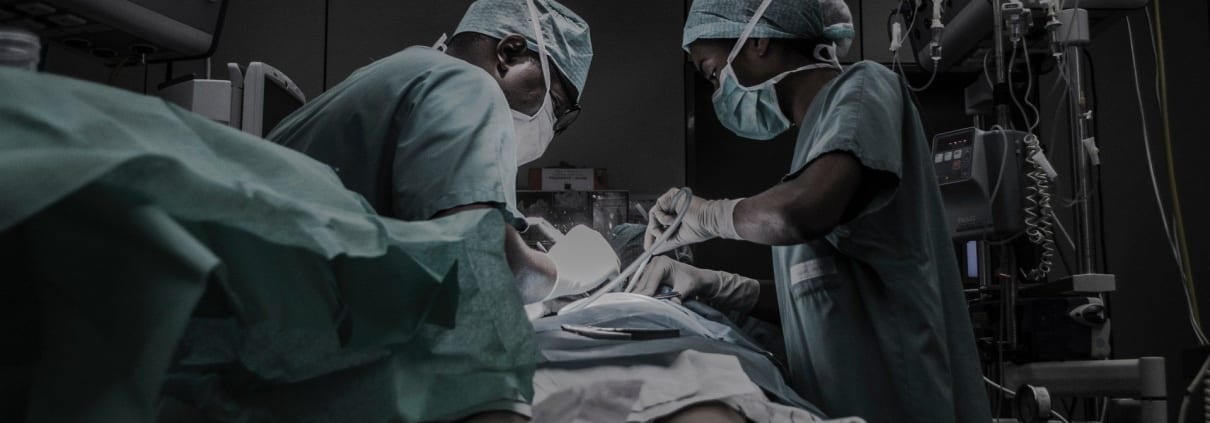Sepsis Kills
In England around 123,000 causes of sepsis occur, which results in approximately 35,000 people dying each year from the condition.
Anyone can develop sepsis especially after an infection or injury however, some people are more susceptible to this, with sepsis being one of the direct causes of death in UK pregnancies.
Sepsis is a life-threatening condition that arises when the body’s response to infection causes injury to its own tissues and organs. Common signs and symptoms include fever, increased heart rate, increased breathing rate, and confusion.
Sepsis signs and symptoms can be hard to spot as they look like that of someone having flu or a chest infection.
Although sepsis is often referred to as either blood poisoning or septicemia, these terms refer to the invasion of bacteria into the bloodstream.
Without quick treatment, Sepsis can affect multiple organs or the entire body, even without blood poisoning or septicemia.
Sepsis can also be caused by viral or fungal infections, although bacterial infections are by far the most common cause.
Who is at Risk?
· Someone with a medical condition or receiving medical treatment that weakens their immune system
· Someone who is already in hospital with a serious illness
· Someone who is very young or very old
· Someone who has just had surgery or who have wounds or injuries because of an accident
The UK Sepsis trust has come up with a useful mnemonic for sepsis:
S – Slurred Speech
E – Extreme shivering or muscle pain
P – Passing no urine in a day
S – Severe breathlessness
I – I feel like I might die
S – Skin mottled or discoloured.
If you see any of these, you should seek urgent medical help.
The NHS advice is to go straight to A&E or call 999 if a child presents with the following:
· Looks mottled, bluish or pale
· Is very lethargic or difficult to wake
· Feels abnormally cold to touch
· Is breathing very fast
· Has a rash that does not fade when you press it
· Or finally, has a fit or convulsion.
Sepsis symptoms in older children and adults may include:
· An elevated temperature (fever) or low body temperature
· Chills and shivering
· A fast heartbeat
· Fast breathing.
In some cases, symptoms of more severe sepsis or septic shock when your blood pressure drops to a dangerously low level can include:
· Feeling dizzy or faint
· A change in mental state – such as confusion or disorientation
· Diarrhoea
· Nausea and vomiting
· Slurred speech
· Severe muscle pain
· Severe breathlessness
· Less urine production than normal – for example, not urinating for a day
· Cold, clammy and pale or mottled skin
· Loss of consciousness.
If you think you or someone in your care has any of these conditions go straight to A&E or call 999.
Tests to diagnose sepsis
Sepsis is often diagnosed based on simple measurements such as your temperature, heart rate and breathing rate.
A blood test may be required. Other tests can help determine the type of infection, where it’s located, and which body functions have been affected.
Treatments for sepsis
If sepsis is detected early and hasn’t affected vital organs yet, it may be possible to treat the infection at home with antibiotics. Most people who have sepsis detected at this stage make a full recovery.
Almost all people with severe sepsis and septic shock require admission to hospital. Some people may require admission to an intensive care unit (ICU).
Because of potential problems with vital organs, people with severe sepsis are likely to be very ill and the condition can be fatal.
However, sepsis is treatable if it is identified and treated quickly and, in most cases, leads to a full recovery with no lasting problems.
You can find more about sepsis on the UK Sepsis Trust website at www.sepsistrust.org
For more information on classroom or onsite First Aid training visit Safe Hearts Training website.







Needed to log in to ph33comapplogin the other day and it was actually pretty smooth. App worked well, no glitches, easy to get around. If you’re having trouble finding the login, here’s a direct link: ph33comapplogin Might save you some time!
I don’t think the title of your article matches the content lol. Just kidding, mainly because I had some doubts after reading the article. https://www.binance.info/ru-UA/register?ref=JVDCDCK4
Your point of view caught my eye and was very interesting. Thanks. I have a question for you.
Thanks for sharing. I read many of your blog posts, cool, your blog is very good.
Alright, listen up. vip777login treated me well. Solid interface and the customer service was quick to help. Give it a try: vip777login
Yo, 56jlapp is convenient for mobile play. Easy to find your way around the app and games load quickly if your internet is good. Worth checking out: 56jlapp
Hey, 3patticrownapk is pretty awesome! It is fun to play with friends. It’s exciting and the graphics are great. Try it out: 3patticrownapk
Your article helped me a lot, is there any more related content? Thanks!
Your point of view caught my eye and was very interesting. Thanks. I have a question for you.
Your point of view caught my eye and was very interesting. Thanks. I have a question for you. https://accounts.binance.info/register-person?ref=IHJUI7TF
Your article helped me a lot, is there any more related content? Thanks!
Thank you for your sharing. I am worried that I lack creative ideas. It is your article that makes me full of hope. Thank you. But, I have a question, can you help me?
Your article helped me a lot, is there any more related content? Thanks! https://www.binance.info/register?ref=IHJUI7TF
Thanks for sharing. I read many of your blog posts, cool, your blog is very good.
Can you be more specific about the content of your article? After reading it, I still have some doubts. Hope you can help me. https://accounts.binance.info/en/register?ref=JHQQKNKN
Thanks for sharing. I read many of your blog posts, cool, your blog is very good.
Your article helped me a lot, is there any more related content? Thanks!
**mitolyn reviews**
Mitolyn is a carefully developed, plant-based formula created to help support metabolic efficiency and encourage healthy, lasting weight management.
Heard some buzz about salambetgame. Anyone made any cash on it? Thinking of giving it a spin: salambetgame
Is luck55game where the party’s at? Someone hook me up with the real deal info, maybe here: luck55game
RS777vip is treating me well. Love the VIP perks. The games are hot, servers were stable. If you’re looking for a reliable place this is it. Join the elite: rs777vip
Thanks for sharing. I read many of your blog posts, cool, your blog is very good. https://www.binance.com/uk-UA/register?ref=XZNNWTW7
I don’t think the title of your article matches the content lol. Just kidding, mainly because I had some doubts after reading the article.
Thanks for sharing. I read many of your blog posts, cool, your blog is very good.
Thanks for sharing. I read many of your blog posts, cool, your blog is very good.
I don’t think the title of your article matches the content lol. Just kidding, mainly because I had some doubts after reading the article.
Your article helped me a lot, is there any more related content? Thanks! https://www.binance.com/register?ref=IXBIAFVY
Can you be more specific about the content of your article? After reading it, I still have some doubts. Hope you can help me.
Can you be more specific about the content of your article? After reading it, I still have some doubts. Hope you can help me.
Can you be more specific about the content of your article? After reading it, I still have some doubts. Hope you can help me.
Can you be more specific about the content of your article? After reading it, I still have some doubts. Hope you can help me.
Can you be more specific about the content of your article? After reading it, I still have some doubts. Hope you can help me.
Your point of view caught my eye and was very interesting. Thanks. I have a question for you. https://www.binance.info/zh-TC/register?ref=DCKLL1YD
Can you be more specific about the content of your article? After reading it, I still have some doubts. Hope you can help me.
Thanks for sharing. I read many of your blog posts, cool, your blog is very good.
I don’t think the title of your article matches the content lol. Just kidding, mainly because I had some doubts after reading the article.